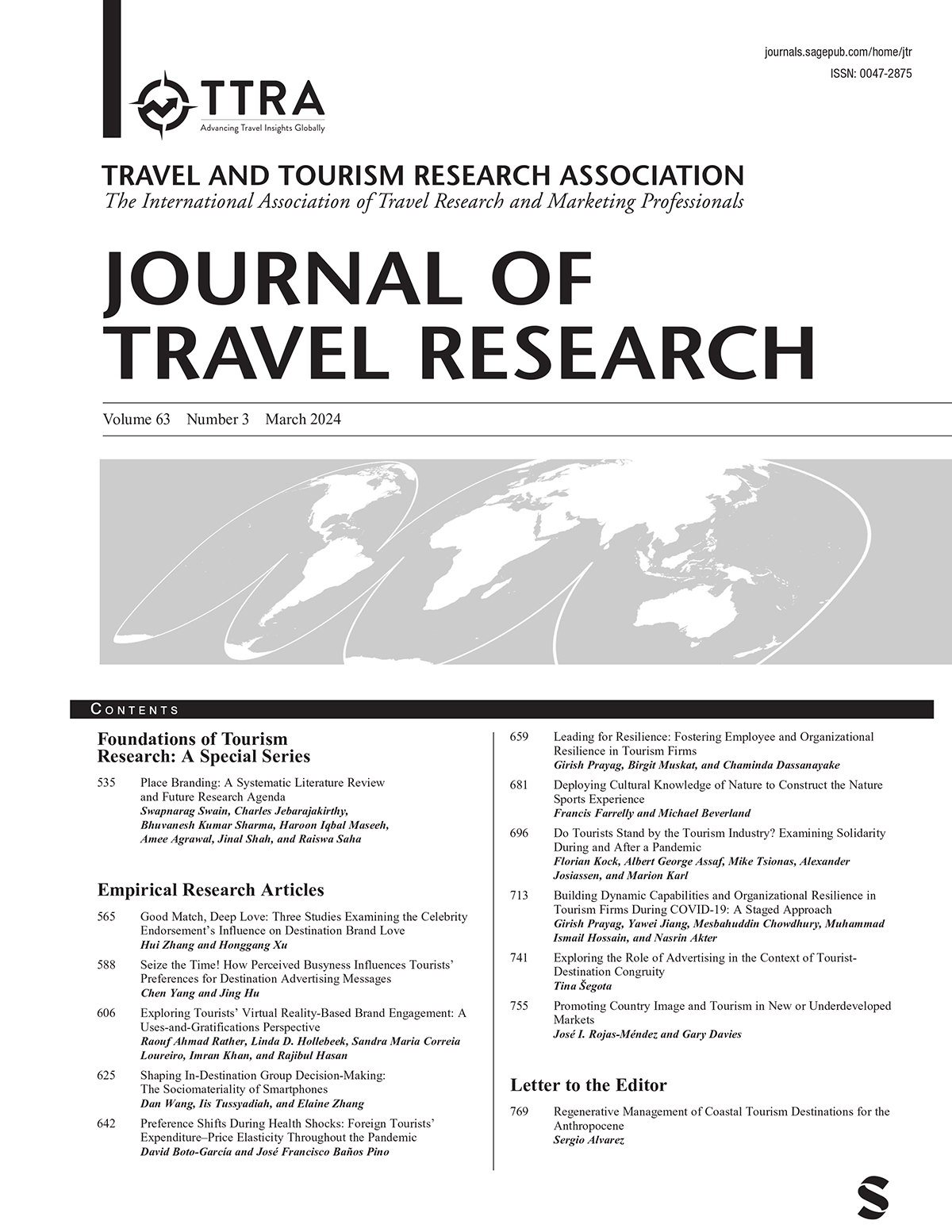旅游环境可持续性绩效沟通的有效性评估:中介与调节效应
IF 7
2区 管理学
Q1 HOSPITALITY, LEISURE, SPORT & TOURISM
引用次数: 0
摘要
本研究旨在探讨不同的可持续发展绩效沟通框架如何以及何时影响旅行者的行为意图。具体而言,本研究考察了(1)可持续发展绩效沟通框架在塑造旅行者行为意图中的有效性,(2)感知可持续发展承诺的中介作用,以及(3)可持续发展绩效沟通水平的调节作用。四个实验的结果表明,在确定旅行者的行为意图方面,传达可持续发展绩效比不报告可持续发展绩效更有效。此外,在沟通可持续性绩效时,增强框架比减少框架更有效。我们还发现,旅游提供者对可持续发展的承诺解释了可持续发展绩效沟通框架对行为意图的影响。此外,我们发现在增强框架中传达中等水平的可持续发展绩效和在减少框架中传达高水平的可持续发展绩效是有效的。本研究对发展有效的可持续发展沟通具有理论和实践意义。本文章由计算机程序翻译,如有差异,请以英文原文为准。
Assessing the Effectiveness of Environmental Sustainability Performance Communication in Tourism: Mediation and Moderation Effects
This study aims to examine how and when different framings of sustainability performance communication influence travelers’ behavioral intentions. Specifically, it examines (1) the effectiveness of sustainability performance communication framing in shaping traveler’s behavioral intentions, (2) the mediating role of perceived commitment to sustainability, and (3) the moderating effect of the level of sustainability performance communicated. The findings of the four experiments conducted revealed that communicating sustainability performance is more effective than not reporting it in determining travelers’ behavioral intentions. Furthermore, an enhancement framing is more effective when communicating sustainability performance than a reduction framing. We also found that tourism provider’s commitment to sustainability explains the impact of sustainability performance communication framing on behavioral intentions. Furthermore, we found that communicating a moderate level of sustainability performance in enhancement framing and a high level in reduction framing is effective. The study provides implications for theory and practice in developing effective sustainability communication.
求助全文
通过发布文献求助,成功后即可免费获取论文全文。
去求助
来源期刊

Journal of Travel Research
HOSPITALITY, LEISURE, SPORT & TOURISM-
CiteScore
18.90
自引率
9.00%
发文量
66
期刊介绍:
The Journal of Travel Research (JTR) stands as the preeminent, peer-reviewed research journal dedicated to exploring the intricacies of the travel and tourism industry, encompassing development, management, marketing, economics, and behavior. Offering a wealth of up-to-date, meticulously curated research, JTR serves as an invaluable resource for researchers, educators, and industry professionals alike, shedding light on behavioral trends and management theories within one of the most influential and dynamic sectors. Established in 1961, JTR holds the distinction of being the longest-standing among the world’s top-ranked scholarly journals singularly focused on travel and tourism, underscoring the global significance of this multifaceted industry, both economically and socially.
 求助内容:
求助内容: 应助结果提醒方式:
应助结果提醒方式:


